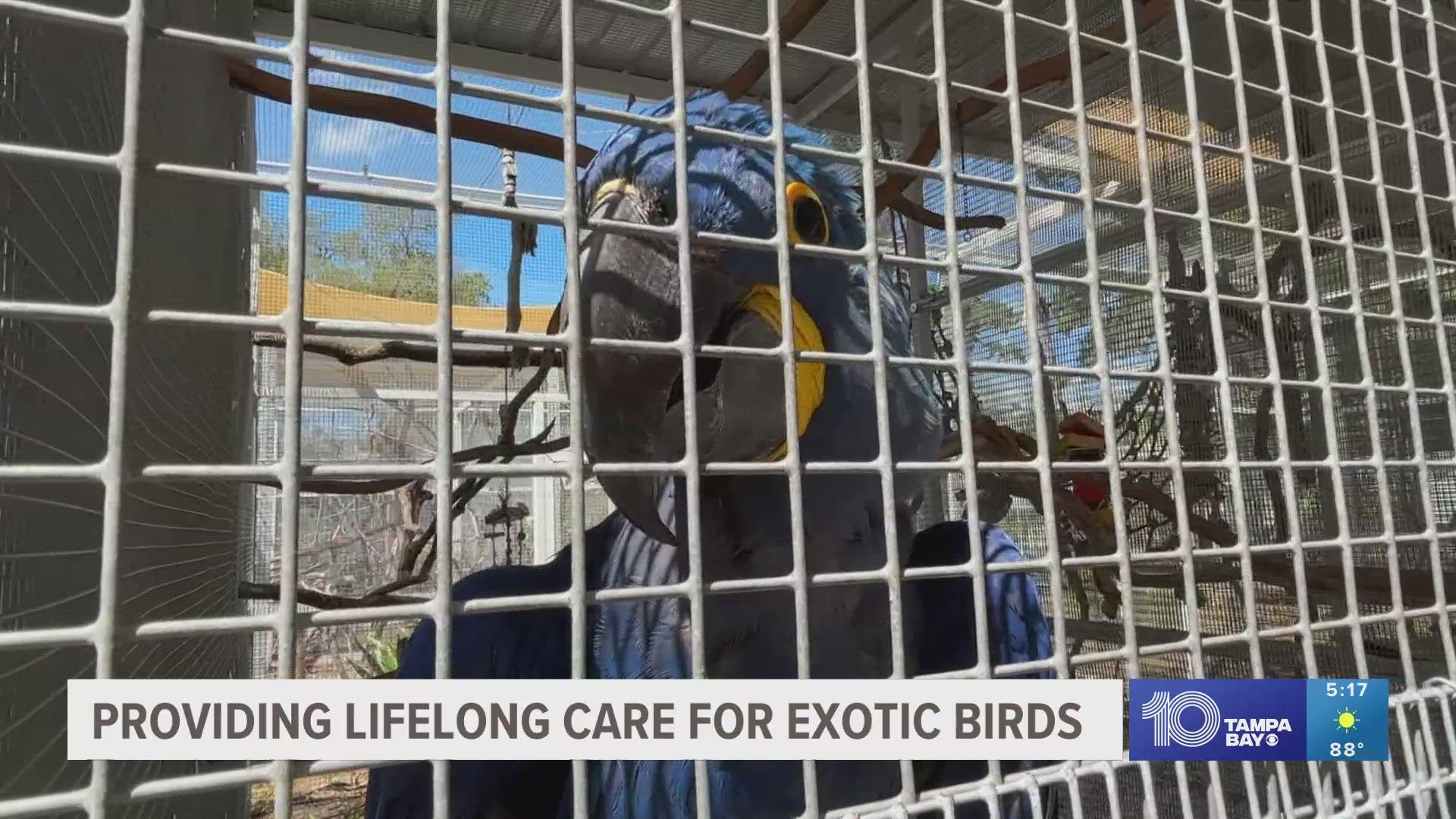HUDSON, Fla. — You can hear the sanctuary squawking. With 900 parrots it sounds like how you would imagine a rainforest. The Florida Exotic Bird Sanctuary encompasses 3.5 acres in the heart of Hudson. The organization touts itself as the largest avian rescue in the South.
These parrots are here because they’ve either outlived their owner or have become too much responsibility for aging or ailing owners.
“These guys are such large responsibilities that it’s a lot to ask someone who’s really not deeply into birds to take in this level of parrots because these guys live 80, 90 years,” said John Wiggins.
Wiggins is the caretaker at FEBS and one of the daily caregivers.
“I know personally about four to 500 birds, I can tell offhand. I’ve got 100 of them that are personally bonded with me,” he said.
He proves that as we walk into one of the large outdoor open-air flight enclosures with about 50 macaws. Some fly down and he knows their names and personalities. He says these birds have the intelligence of a three or four-year-old child.
Wiggins grew up with some of the birds here. His mother started the non-profit about two decades ago.
“Miss Molly here is a 26-year-old Moluccan Cockatoo. We got her down in Miami,” he said.
Molly is very talkative. She came from a good home.
“Lady ended up passing away, the family couldn’t take the burden and the lawyers came in and realized that they needed to find a spot for her,” he said.
It's situations like this where the sanctuary steps in and offers lifetime care. FEBS board member Dennis Padget says FEBS sees a 15% percent increase in its flocks each year.
“There are still people buying birds and breeders out there and with their life span it’s kind of natural that human companions won’t live as long," he said. "So, we know there’s going to be a need, and we’re constantly planning for it. That’s why we’re expanding right now."
A generous donation is allowing the sanctuary to expand. There will be more flights and new facilities. The organization anticipates being able to take in another 400+ parrots.
The non-profit does not take any government funding. The one-time sponsorship fee paid when a bird first moves in covers a portion of the cost of lifetime care including health care.
“We go through about 4,000 pounds of pellet, 2,000 pounds of seed and about 600 to 700 pounds of mixed nuts and vegetables for them every single month,” Wiggins said.
Operations are additionally supported by volunteers, gifts and tours.
During our visit, a group stopped in for a tour. They saw a brochure at the resort where they were staying and wanted to see and interact with the birds.
“They’ve sat on our shoulder. It’s fun! It’s just neat that they have such a place for birds,” Diane Klinger said.
The tours allow the caregivers to educate visitors about the excessive breeding of parrots, the overpopulation, their lifespans and the heartbreaking reality of what these parrots face without a safe haven. That’s what they are, a place just for the birds.
“We’re forever home for the birds, just to make sure that they can get put into a big flight and just be parrots around each other,” said Wiggins.
The Florida Exotic Bird Sanctuary does not sell, breed or adopt any of its birds.
If you’re thinking about getting a parrot, there’s another option. Volunteer! The sanctuary is always looking for volunteers to help care for these parrots and the property. It’s a great way to enjoy exotic parrots without the commitment for your life and generations to come.
You can find more information on donating, volunteering and finding potential placement by going to www.flabirdsanctuary.org.

